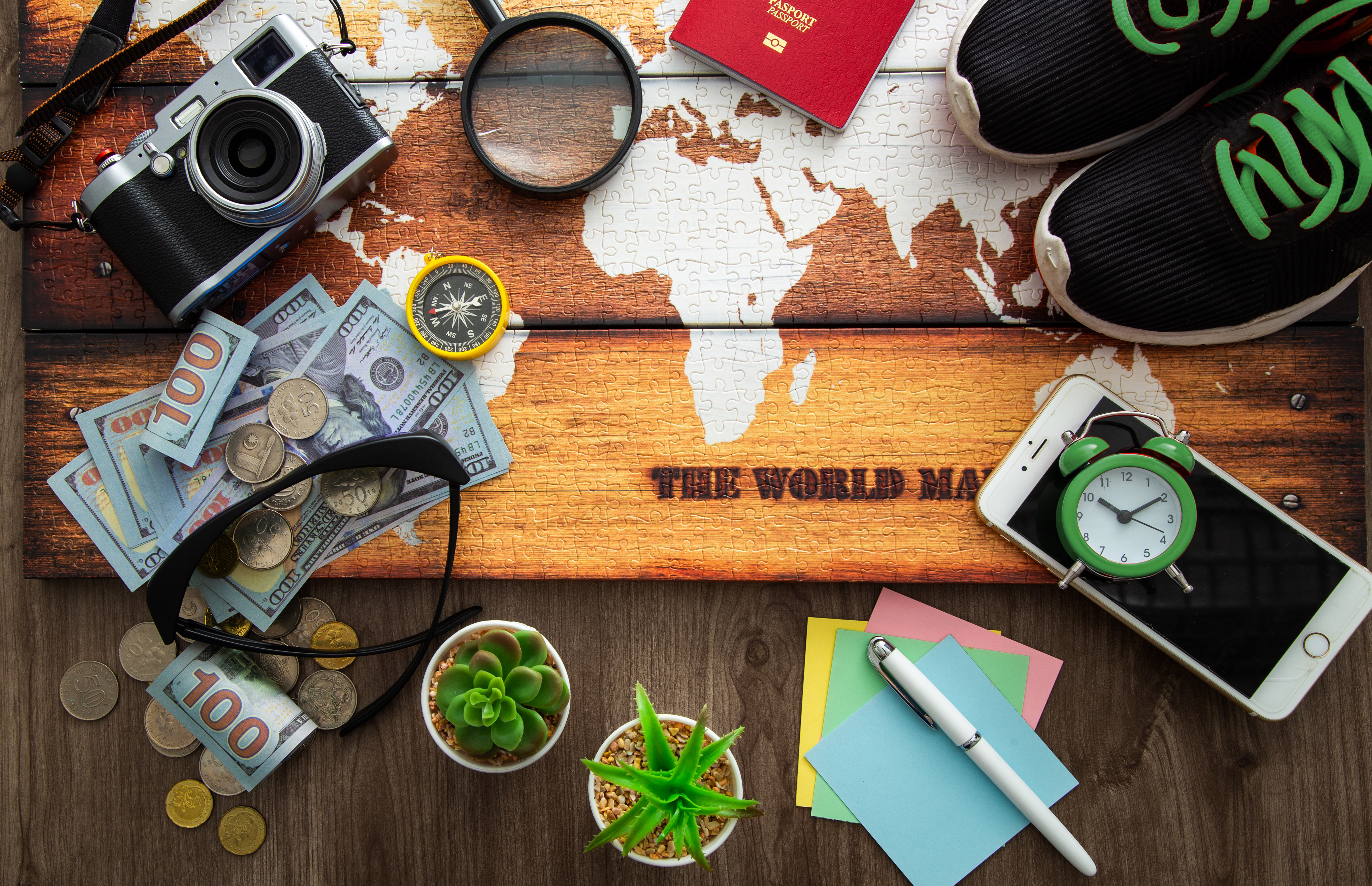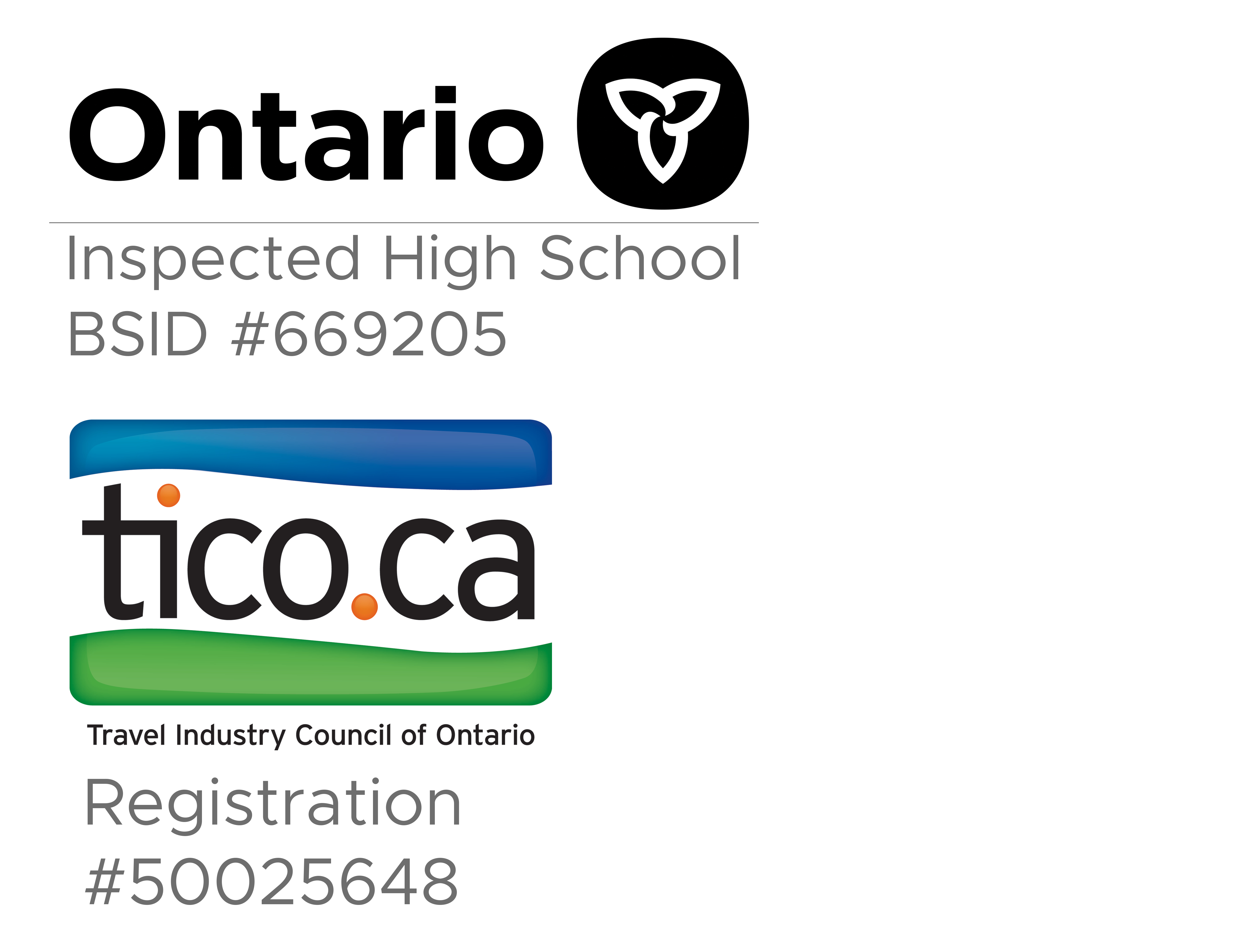Studying abroad is an amazing experience. You get to immerse yourself in another culture, the food, the language, and the sites.
However, you should ensure that you have everything in place ahead of time and know what to do in case of emergencies. A prepared traveller has more fun and learns more without the worry of what to do if something goes wrong.
Your program manager and travel provider can provide you with information about the program, and make recommendations on how to prepare to make the best of your studies.
However, there are more factors to consider before studying abroad. By following this checklist, you can prepare for the best and most enjoyable once-in-a-lifetime experience.
1. Financial planning
Travel is expensive, and studying abroad can be more so as you also pay for the course. Start saving as early as possible to ensure that you can afford to take the program you want and that you can afford the experience, as well as having enough spending money to enjoy your time travelling during the summer.
When the time draws closer, it is advisable to contact your bank to let them know your travel dates. That way, if you use your debit or credit card while away, they won’t flag it as a possible fraud and block your cards.
With everything being done almost exclusively online these days, make sure you have updated your banking passwords and apps so that you can easily and securely access your funds while away.
Try to keep some spending money on hand so that you have hard cash with you. You may get a good exchange rate when converting to the local currency, but this will also eliminate bank fees and charges for using your cards.
2. Visa and passport renewal
When you finally decide to take the leap and go for it, check your passport to ensure it has not expired or would expire while you are away. Give yourself plenty of time to send it out to renew before you are due to leave. To travel to most countries, your passport needs to expire more than six months after you are set to return home. Double check your passport to ensure the dates line up!
Some countries (especially since COVID-19) now require visas or health documentation to travel but check with the school to confirm. Again, you should allow yourself adequate time to apply for the visa and other documents to avoid delays. Check to see if your travel provider will assist with this process as well.
Now would also be a good time to find out where the local embassies are in the country you are travelling to. For emergency purposes, you can go to your country’s embassy for support. While this is something everyone tries to avoid, it’s good to know before you travel, just in case. That way, you are not panicking and making an already bad situation even worse.
3. See your doctor
Your doctor’s office has more services than your yearly checkup. While this is always advisable, some countries will have medical requirements prior to travel, and your doctor can either do this checkup, or they can refer you to a clinic that can.
These requirements are usually non-invasive and simple, like updating your vaccines and medical history, blood pressure tests, and heart checks. So, it’s nothing to worry about, but you should make sure they’re done ahead of time.
There is usually a form that needs to be completed, so there may be a fee associated. It’s best to check this and add the cost to your budget.
4. Insurance
There is nothing worse than the feeling you get when something goes wrong, and you have no insurance to help you out.
The most-bought policy is travel insurance. It ensures protection and coverage for cancelled or delayed flights, lost luggage, or accommodation issues. However, don’t forget about health insurance. There is nothing worse than breaking a limb in another country, for example, and having to pay the medical bill out of pocket while trying to work out how to get home again.
While you will need to add this consideration to your budget, the policies are not that expensive and are definitely worth it in the event of an emergency. It’s better to have such a policy and not need it than to be without it altogether.
5. Customs and culture
While you are travelling to explore new lands, learn a new language or skill, and take in the sights and history, it is beneficial to understand the local customs. Failure to do so could get you into a lot of trouble for inadvertently insulting or offending the locals.
Knowing things like how to dress or greet someone could be the difference between a great time with friends and a poor time at the local police station.
6. Emergency contacts
Taking part in any study-abroad program is fun and exhilarating. You are away from home, family, and friends while exploring a strange and unfamiliar land.
You should always know how to make contact with your family and friends at home while travelling. This allows them to follow your adventures, and know that you are safe. This way, if you’re unable to check in, they can then alert the authorities on your behalf.
Keeping contact with family and friends while travelling can be tricky. Before you leave, make a copy of all your emergency and important numbers, both on your phone and on a notepad in your luggage.
Reach out to your phone provider and consider adding a roaming package to your plan. This helps to reduce costs, but it also means that your phone will work in other countries.
Confirm where you are staying and let your family and emergency contacts at home know, so they can reach you when needed.
7. Pack with efficiency
You won’t need to bring a lot with you, but there are a few essentials to take. Keep in mind that things like personal hygiene products can be purchased while you are away, so those items can be packed sparsely. There are also laundry services available, so you don’t have to pack every item of clothing you own.
Here are some other things to consider:
- Clothing: Pack appropriate clothes for the weather in the country you are visiting.
- Shoes: Ensure you have a good, sturdy but comfortable pair of walking shoes and one nice pair for formal events or downtime.
- Comfort: Take one or two of your favourite personal items to help combat homesickness.
- High-ticket items: Things like chargers, tablets, phones, laptops, and cameras are highly sought after. So, pack what you need, take photos of the items to prove that they are yours, and try not to keep them all together.
Don’t forget to have fun!
Once you have everything done, in place, ordered, and packed away, remember to have fun. This once-in-a-lifetime opportunity should be enjoyed to the fullest.
For more information on our study-abroad programs, call Global Summers Academy at 1-844-357-2621 or contact us here.














